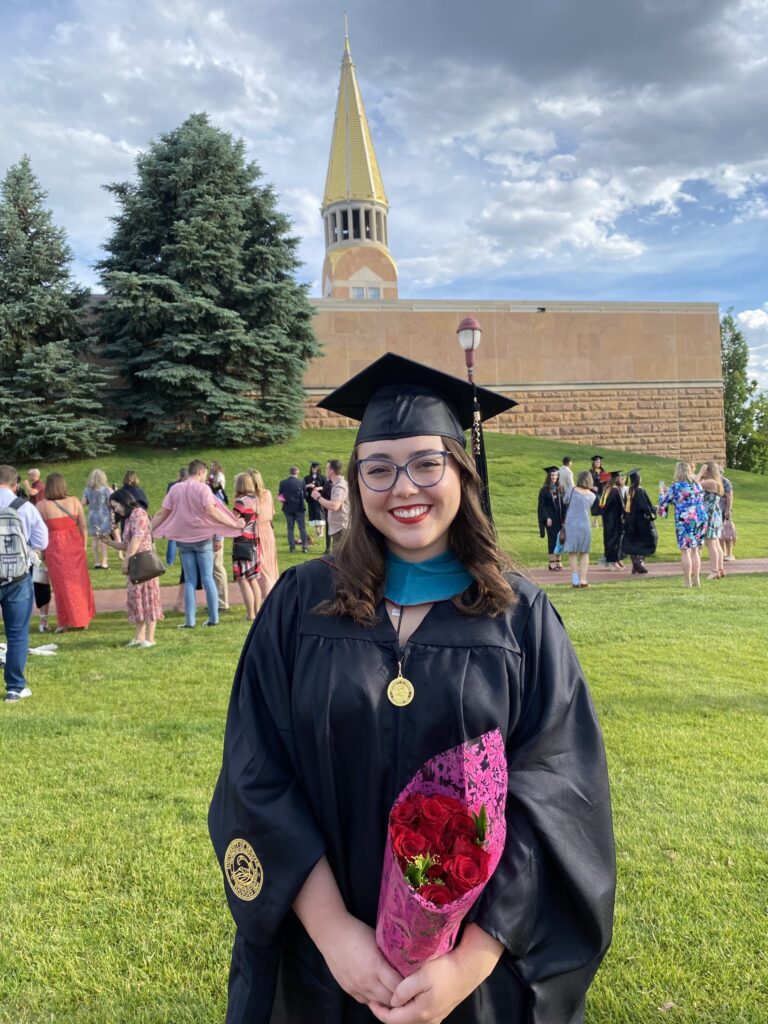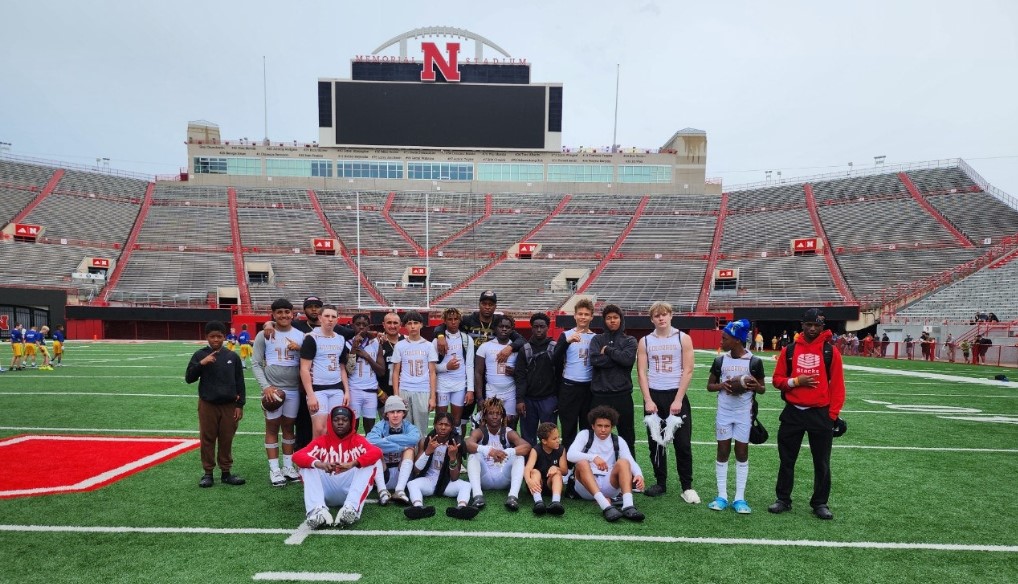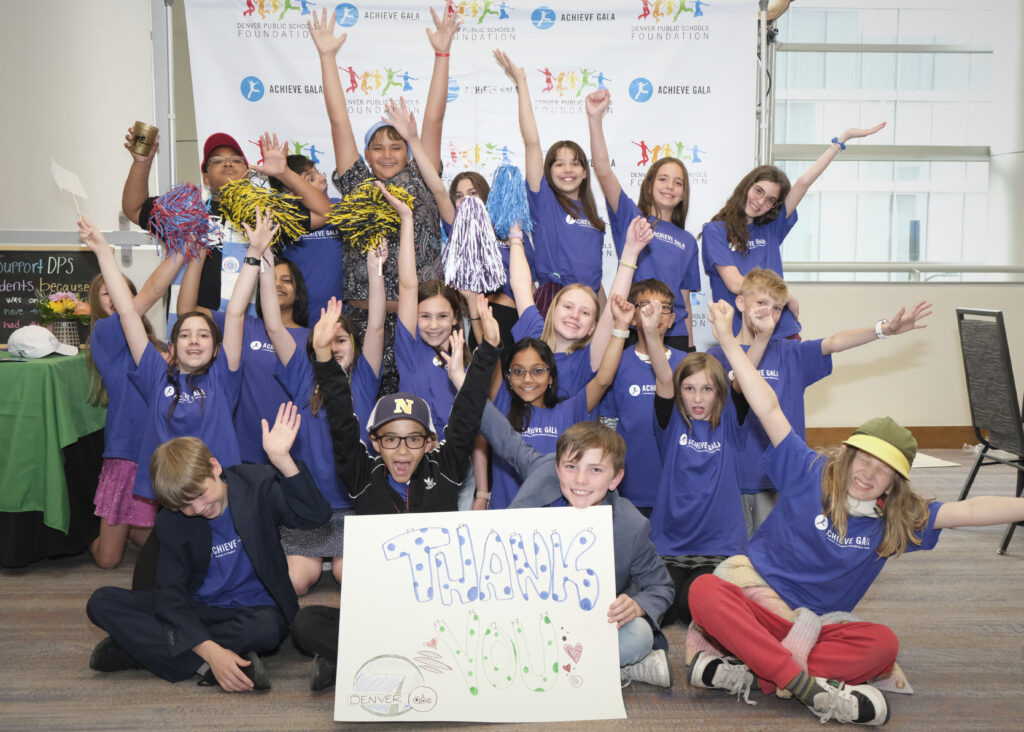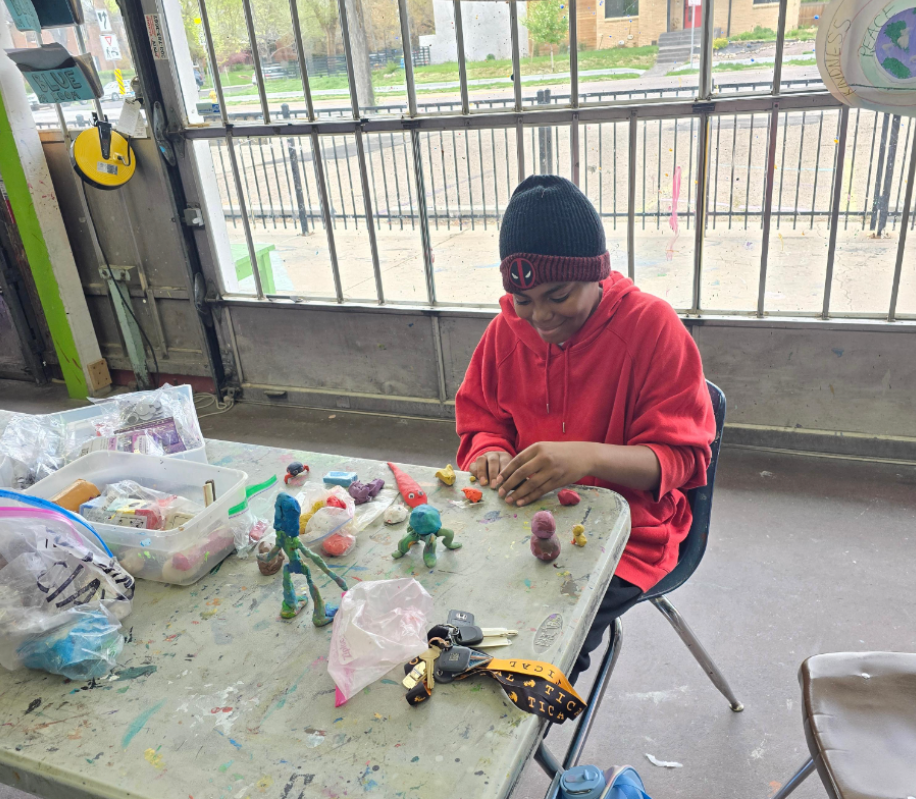As my time with Denver Public Schools Foundation comes to a close, I wanted to reflect on what this experience has meant to me. My passion for public education probably started when my brothers were still in high chairs. I used to sit with them for hours, reading aloud just like I saw my first grade teacher do everyday. Skip forward almost fifteen years and I was once again reading aloud my favorite stories, this time to students in France. My experience there as a teaching assistant was cut short due to the pandemic, and I found myself at the University of Denver, once again as a student.
I graduated this month with a Masters in International Studies, meaning I’m practically now an expert in all the daunting problems our world faces today. This focus, along with the difficulty of participating in an entirely virtual education environment, made me ask a lot of tough questions of myself. It was at this point that I came across the School Partners Program intern position with Denver Public Schools Foundation.
We often talk of students as the future, as the force that will make everything better in our communities. As a young person, I know the pressure of these comments, especially when there aren’t resources or support in building that future everyone wants to see. It’s been amazing to work with the Foundation and their community partners who understand the necessity of investment and the power of compassion.
One of the coolest projects to observe was the community garden at Fairview Elementary, which is supported through the $1 Million Dollar Fund. The students at this school are experiencing incredible disruption around them, and so the garden represents a place of stability. All students deserve to have these kinds of spaces in school.
My internship at Denver Public Schools Foundation also grounded me in my choices. Throughout my experience as a Masters student, I was often doubtful if I’d chosen the right program or even the right field. Working closely with community partners showed me how transferable my skills are and how useful they can be in a local setting. Diplomacy for instance is largely an exercise in people management: the management of priorities, expectations, and emotions. This translates well into work with volunteers for example where we seek to build a valuable experience for a wide range of people.
And so while all of the big problems still remain, I have a renewed sense of hope that progress is possible in our corner of the world.
Olivia Barrows
School Partners Intern




